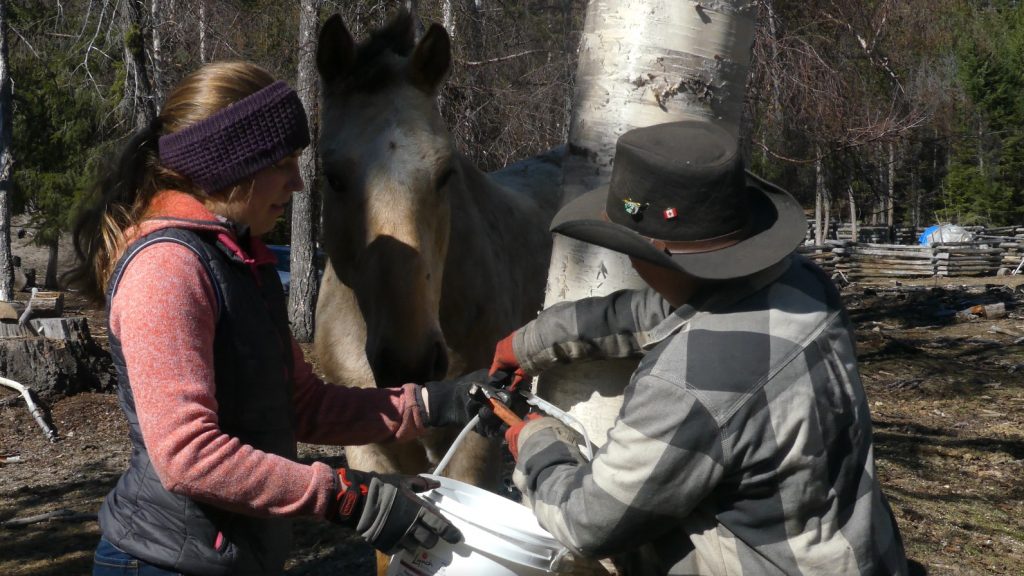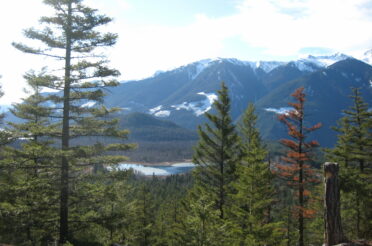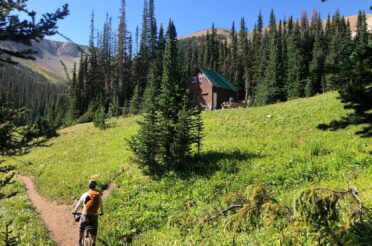
Everybody has heard of tapping maple trees for syrup. But did you know you can also tap birch trees? Although maples trees were first tapped in North America, Nordic people have drunk birch water for thousands of years, making birch beer, kvass (a fermented beverage made using rye bread and birch syrup as a sugar) and syrup (Adamant, 2018).
Trees of the Betula genus create sap that is harvested in early spring (McGrane, 2019). In winter, the trees store nutrients that are released as sap. Birch water (or sap) is a clear colour and has a slightly sweet flavour. It can be harvested by “tapping” a tree, inserting a “tap” with a pointed end into the tree until it is just under the bark. Then the sap flows out of the tree and into a bucket. Tapping birch trees doesn’t harm them. It is a sustainable practice that doesn’t interfere with the tree’s normal functions.
You can typically tap 3 gallons of sap a day from a birch tree and 110 gallons are needed to produce just one gallon of syrup. However, birch water can also be drunk straight out of the tree. But there is a very short window for tapping birch trees. Only for three weeks each year is the sap good to harvest. Day temperatures need to be above freezing and night temperatures below. This is the time to start tapping, but as soon as buds begin to appear on the trees, the sap becomes sour and cloudy, this is the end of the tapping season (Adamant, 2018).
Not only is there a short tapping season, there are a lot of factors that affect the nutrient composition of the birch water including geology, soil type, species and age of tree.
At the ranch, we have the perfect opportunity to tap the birch trees around the ranch every year. We made a video for you to explain how to tap birch trees for sap. But before you watch the video, let me tell you about the health benefits of birch water and why it’s important to consume it in moderation.
So, what are the health benefits of drinking birch water? It’s low in calories and sugar and 300ml contains 95% of your daily value of magnesium and 130% of your daily manganese (McGrane, 2019).
When combined with calcium, zinc and copper, that are all found in birch water, manganese can reduce spinal bone loss in older women (McGrance, 2019). Manganese is required for normal functioning of your brain and nervous system and can improve bone health as bone mineral density is supported (Goodson, 2018). Its antioxidant properties help combat high cholesterol and arthritis (Goodson, 2018).
Magnesium is an essential nutrient for energy, protein formation, muscle contraction and relaxation and nervous system regulation (Spritzler, 2018). As around 50% of people in the US and Europe don’t get enough magnesium (Spritzler, 2018), birch water has an important role to play in ensuring this mineral is in your diet.
But that’s not all. Birch water also contains polyphenol antioxidants that fight oxidative stress, an imbalance of free radicals in the body that easily react with other molecules. Polyphenols work as a preventive for heart disease, Type II diabetes, osteoperosis, Alzheimer’s, Parkinson’s and some cancers (McGrane, 2018).
And birch water is also a source of Vitamin C, an antioxidant that stimulates collagen production and protects the body from UV rays. Sailors historically drank birch water to ward off scurvy, a Vitamin C deficiency that causes weakness, bleeding from the skin and gum disease (McGrane, 2018).
And what’s more, birch water can also aid in weight loss as it eliminates excess salt and cleanses the urinary tract of harmful toxins (Patterson, 2016). When toxins build up, the body holds onto fat to protect your organs. Removing toxins helps the liver as it doesn’t have to work so hard to remove toxins from the body.
Birch water also contains xylitol, a natural chemical compound that can reduce tooth decay. It coats the teeth and the bacteria that cause tooth decay can’t feed on it (Patterson, 2016).
But to get the full benefits of birch water, you need to drink it in moderation to keep a healthy balance. Drinking too much birch water will create an excess of manganese in your diet and so you should limit your intake of birch water (McGrane, 2019). An excess of manganese (typically more than 11mg per day by mouth) can cause tremors, difficulty walking, aggression and hallucinations (Reuters, 2001).
Ensuring birch water is consumed in moderation as part of a balanced diet means you will be able to enjoy the benefits. But because of the amount of work it takes to produce birch syrup, it can cost you up to $400 a gallon to purchase in a grocery store (Adamant, 2018). If you don’t have access to your own birch trees to tap, the cost of the birch syrup might be your limiting factor in how much you can consume!
Drinking birch water straight from the tree or making birch syrup is just one of the ways we can connect with nature at the ranch. Harvesting small, sustainable quantities of birch water from our local environment means we have a lower carbon footprint than buying birch water from the store. As we harvest from nature, this also means we’re responsible for conserving these birch trees. As wilderness stewards, we know how important it is to act as stewards of the land we benefit from. The more deeply connected we are connected to nature, the more we want to conserve it.
Harvesting from the land is also a part of personal development. We aren’t dependent on other people to provide food for us, we know how to harvest it ourselves. This empowers us to find ways to work with nature and become self-sufficient. This is then an attitude we can apply to all aspects of our lives. We have a positive attitude that allows us to get the job done and if we don’t know how to do something, we can figure it out or work with our fellow community partners to find a solution.
What could you harvest from nature? Around the ranch, we have berries, pine nuts, onions and potatoes, but there’s lots of foods you can find while taking a walk in nature. In the spring, nettles and dandelions are great to make tea or soup with (Vinje, 2020). Berries are also available in the fall. But before you eat anything from nature, make sure you’ve identified exactly what it is and that it’s safe to eat. If in doubt, don’t eat it! There are lots of online sources and books that can help you determine what’s edible. So why not get out in nature and see what you can forage?
Charlie, UK
March 25th 2020
Adamant, A. (2018), Tapping Birch Trees. Available at: https://practicalselfreliance.com/tapping-birch-trees/. Accessed: March 30th 2020.
Goodson, A. (2018), 10 Evidence-Based Benefits of Manganese. Available at: https://www.healthline.com/nutrition/manganese-benefits. (Accessed: March 30th 2020).
McGrane, K. (2019), What is Birch Water? Benefits and Downsides. Available at: https://www.healthline.com/nutrition/birch-sap. Accessed: March 30th 2020).
Patterson, S. (2019), 7 Reasons you Should Drink Birch Water and How to Make it Yourself. Available at: https://www.naturallivingideas.com/birch-water-benefits/. (Accessed: March 30th 2020).
Reuters (2001), Supplements May Have too Much Manganese. Available at: https://www.nytimes.com/2001/02/03/health/supplements-may-have-too-much-manganese.html. (Accessed: March 30th 2020).
Spritzler, F. (2018), 10 Evidence-Based Health Benefits of Magnesium. Available at: https://www.healthline.com/nutrition/10-proven-magnesium-benefits. (Accessed: March 30th 2020).
Vinje, E. (2020), Food Foraging 101. Available at: https://www.planetnatural.com/foraging-food/. (Accessed: March 30th 2020).




One Response
The Health Benefits and Disadvantages of Birch Sap Consumption – Legacy Verve
[…] sap also contains immense quantities of manganese. A 300-millilitre portion of birch water contains 130% of the average person’s daily manganese requ…Through the manganese which it provides, birch sap facilitates proper brain and nervous system […]